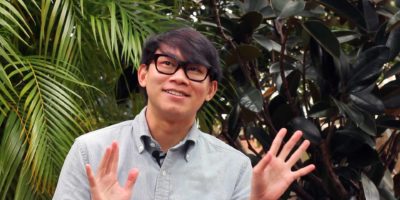
Viet Cuong: Game for Anything
Although Viet Cuong’s compositional output began with works for wind ensemble, he has branched out into numerous other mediums including chamber and orchestral music.
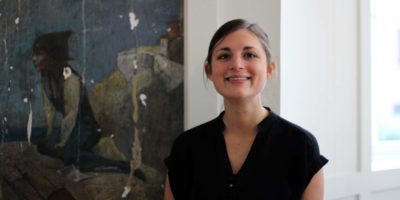
Molly Joyce: Strength in Vulnerabilty
Composer/performer Molly Joyce explains why perpetuating the notion that only a small select few are physically worthy enough excludes most people from the experience of making and ultimately enjoying art.
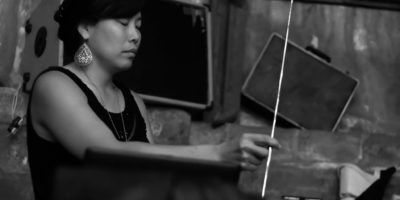
Bonnie Jones: The Sounds of Not Belonging
Bonnie Jones’s music, which fuses electronic noise and text, emerges in large part from the sounds of her childhood, growing up on a dairy farm. Those sounds made an impression, but Jones’s first artistic interest was in creative writing.
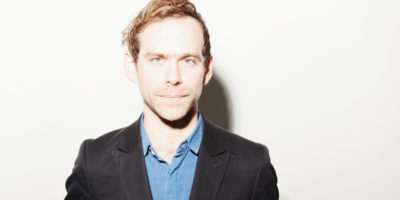
Bryce Dessner: I’m the Same Musician Wherever I Go
Bryce Dessner has learned different lessons from his immersion into very different kinds of music-making and these lessons have made him a stronger musician, whether he is writing songs and playing lead guitar in the indie rock band The National, co-scoring the soundtrack for the motion picture The Revenant, or composing a double piano concerto for the Labeque sisters.
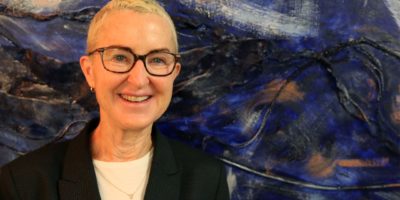
Myra Melford: Freedom and Form
Myra Melford is equally comfortable performing a blues tune, jamming in a completely free-improvisatory setting with other musicians, or exploring more predetermined structures in the compositions she writes for her own ensembles. “I understand that a lot of what I do works in the jazz context … Jazz is an inclusive music.”
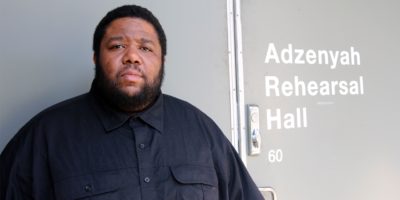
Tyshawn Sorey: Music and Mindfulness
Tyshawn Sorey’s music emerges from a vast array of experiences, communities, storytelling, and a deep engagement in mentor-mentee relationships. Throughout his rigorous career as a composer and performer, Sorey regularly teaches and mentors other artists to support the creation of their own work.
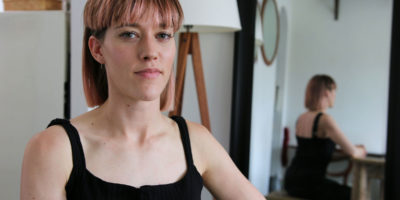
Lucy Dhegrae: The Art and Science Behind the Voice
Urgency is an important ingredient in everything Lucy Dhegrae does—whether singing music by Eve Beglarian, Joanna Newsom, Jason Eckardt, Gabrielle Herbst, and many others, or curating Resonant Bodies, a three-day festival of contemporary vocal music that takes place annually in New York City and which has now had iterations in Chicago as well as in Melbourne and Sydney, Australia. Urgency is also what fuels her life’s mission: to be empowered as a singer and to empower other singers which, aside from a desire to make musical experiences fairer, yields better performances.
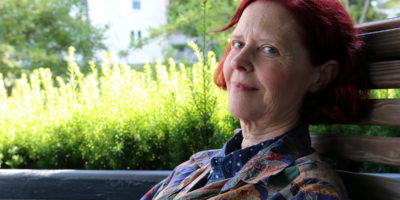
Juliana Hall: Pulled Into The Poets’ World
Juliana Hall has given her almost completely undivided attention to composing art songs for over 30 years, and her love for poetry and the voice has only grown stronger.
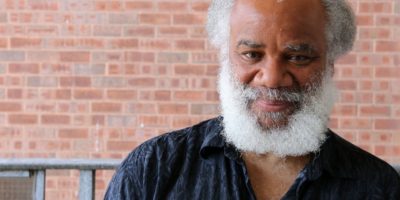
Jeffrey Mumford: Creating a Different World
Jeffrey Mumford started off pursuing a career in the visual arts before music took over his imagination, but his lifelong obsession with clouds translated over from painting into musical composition.
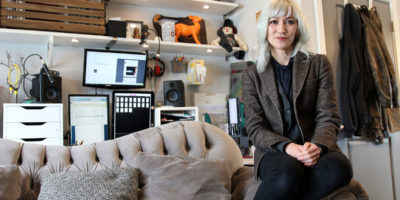
Melissa Dunphy: Composing Has To Be a Calling
Melissa Dunphy frequently creates music which is inspired by current events. What is striking about her music is how deeply it relates to her ideas about social justice and inclusivity.
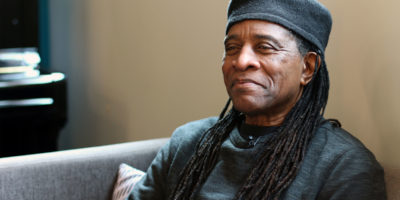
Hannibal Lokumbe: Always Go With the Feeling
Our recent talk with composer-trumpeter-raconteur-poet-community activist-force of nature Hannibal Lokumbe was a 45-minute roller coaster ride that was part testimonial, part reminiscence, part philosophical manifesto, and part performance art, but all pure emotion. Many questions were left unanswered and others just led to other questions for us, some of which we probably will never be able to answer.
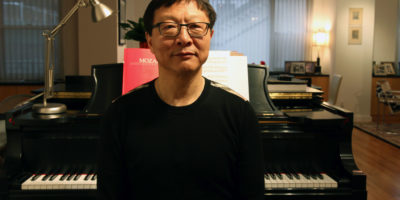
Bright Sheng: My Father’s Letter and Bernstein’s Question
Bright Sheng is concerned about directly moving audiences in whatever format or style he is working in and is passionate about sharing what led him to his aesthetic positions.

Ellen Reid: More Than Sound
Ellen Reid’s instinctive team spirit, as well as her awareness that sound always exists alongside other sensory stimuli, informs all the music she creates, whether it’s the score for the emotionally traumatic yet life-affirming opera p r i s m, the soundtrack for a motion picture, incidental music for theater, a sound installation, or a work for chamber ensemble or orchestra.
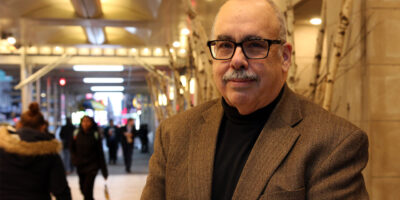
Roberto Sierra: Globalizing Local Experiences
Composer Roberto Sierra frequently likes to tell the story of how, when he was growing up in Puerto Rico, he would hear Pablo Casals playing his cello on television while salsa recordings of the Fania All-Stars blared outside on the street. Most of Sierra’s music—which spans numerous works for soloists, chamber ensembles, and orchestra as well as his massive Missa Latina—has forged a synthesis of these two musical realms. But the question of what kinds of music are local or global is more complex than it might initially seem.
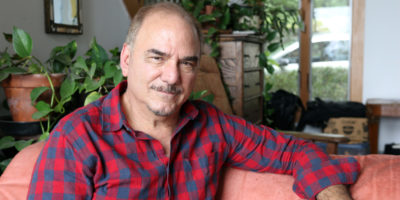
George Tsontakis: Getting Out of My Introvertism
Although George Tsontakis has had a career that most American composers would envy, he aspires to a hermetic existence in the middle of the woods and composes something only when someone commissions it and nothing at all if no one does. Perhaps surprisingly, it’s a strategy that has served him well.
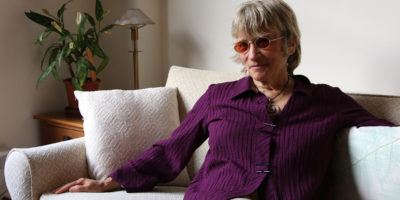
Jane Ira Bloom: Valuing Choices Made in the Moment
Jane Ira Bloom clearly maneuvers within a genre while at the same time subverting any attempt at making generalizations about her work. The primary mode of music-making she engages in is performing her own clearly jazz-oriented instrumental compositions on the soprano saxophone in the company of a small group of like-minded collaborative improvisers. But she also frequently interprets American standards and uses real-time live electronic processing in her saxophone playing.
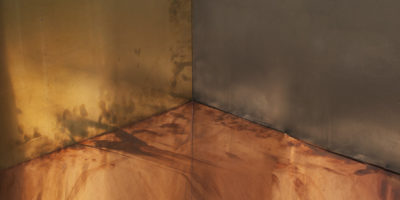
Polyphony and Storytelling: A Conversation with Nate Wooley on Solo Improvisation
Nate Wooley’s music and relationship to his instrument has been a huge inspiration to me as a violinist. So I’m very grateful to Nate for taking the time to offer his take on some thoughts I’ve had since recording the solo improvised material on my debut solo album Engage, and to share a veritable masterclass on improvisation as part of my series of posts.
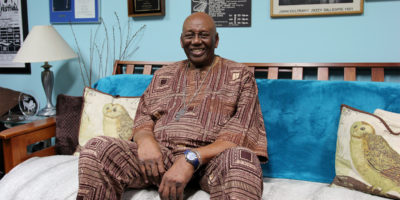
Randy Weston: Music is Life Itself
It has been more than three quarters of a century since the bebop revolution transformed how people made music together. So it is not surprising that so few musicians who came to prominence during that era are no longer with us, especially since so many had tragically short lives. But what is more surprising is that one of these musicians, 92-years young Randy Weston, is still actively performing and composing and evolving, although to him there really isn’t a clear distinction between old and new music.

Andy Akiho: Inside The Instrument
Having a conversation with Andy Akiho is a lot like listening to his music; it’s a high energy adventure bursting with ideas and full of all sorts of serendipitous synchronicities.
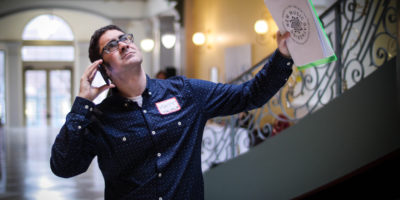
Uncomfortably Serious and Disarmingly Fun: The Irreplaceable Matt Marks
From his work as a founding member of Alarm Will Sound, to his heartfelt and hilarious compositions, to his organizational efforts with New Music Gathering, to his sardonically prolific Twitter account, it was impossible to overlook Matt or his essential role in the new music community.
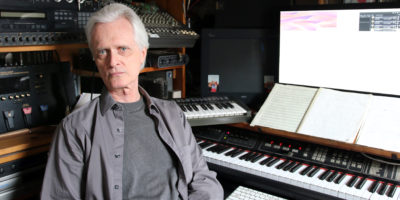
Scott Johnson: The Cultural Version of DNA Mixing
Taking recordings of fragments of speech, transcribing them into instrumental melodies, and then harmonizing them has provided Scott Johnson with the rigorous compositional techniques that underpin his work–from his landmark “John Somebody” to his recent tour de force “Mind Out of Matter.” But it still allows him to reference popular culture, as well as to fuse popular music and various classical inheritances.
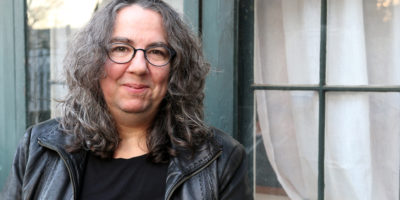
Barbara White: A Plea for Compassion
The deeply personal nature of so many of Barbara White’s compositions explains why she has predominantly written music for soloists or small ensembles. Even the largest-scale project she has ever created—an opera about an unjustly abused woman, which feels particularly relevant since the rise of the #MeToo movement—is extremely intimate.
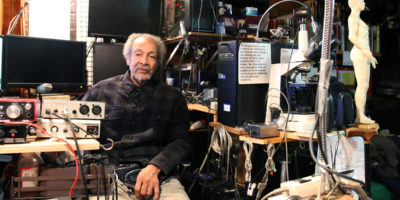
Milford Graves: Sounding the Universe
It is difficult to place Milford Graves into a category. He is lauded as a master drummer of the 1960s avant-garde jazz scene, credited with inventing the martial arts form yara, and is established as both an herbalist and acupuncturist in New York City. Additionally, Graves is a passionate researcher of human biology and brings that knowledge to all of his work.
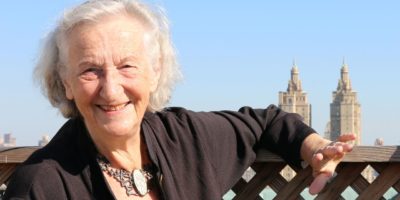
Thea Musgrave: Where The Practicality Comes In
The distinguished, soon-to-be nonagenarian composer Thea Musgrave is one of the music world’s great raconteurs. Her numerous anecdotes about everyone from her one-time teacher Nadia Boulanger to electronic music pioneer Daphne Oram to Aaron Copland, with whom she studied briefly at Tanglewood, are full of take away value for other composers or, for that matter, anyone else dedicated to an artistic pursuit since at the root of all of Musgrave’s anecdotes is a deep sense of practicality. But that doesn’t mean she believes in avoiding risk-taking, as she explains.

